Narrow-leaved Hawk's Beard
 |
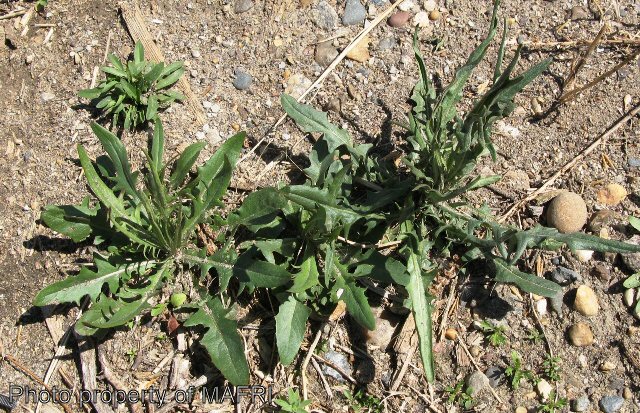 click to enlarge |
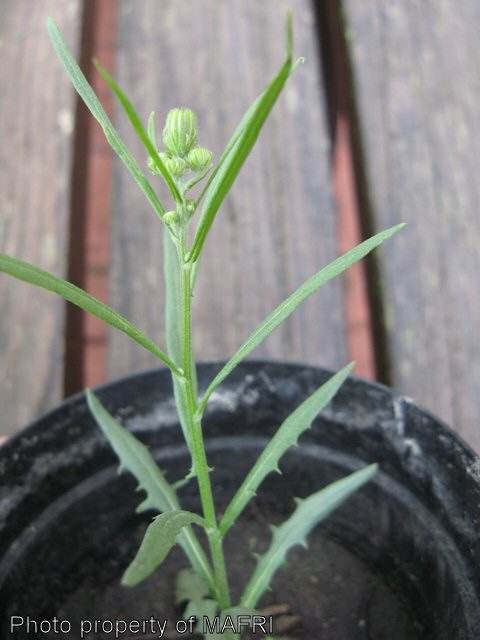 |
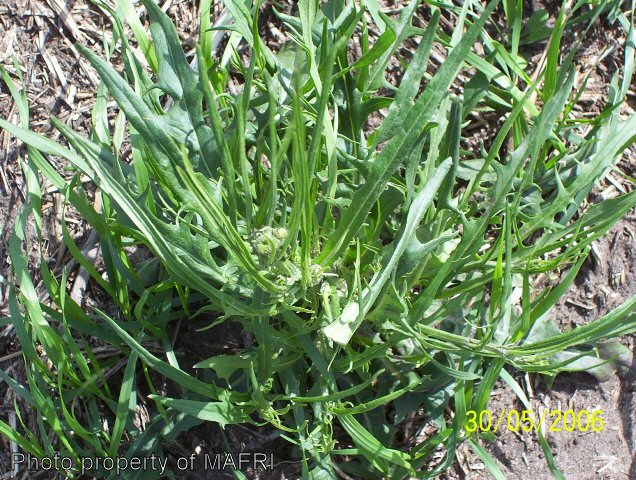 | |
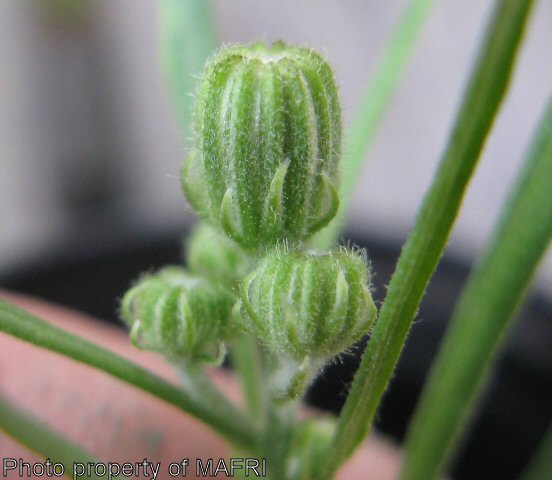 |
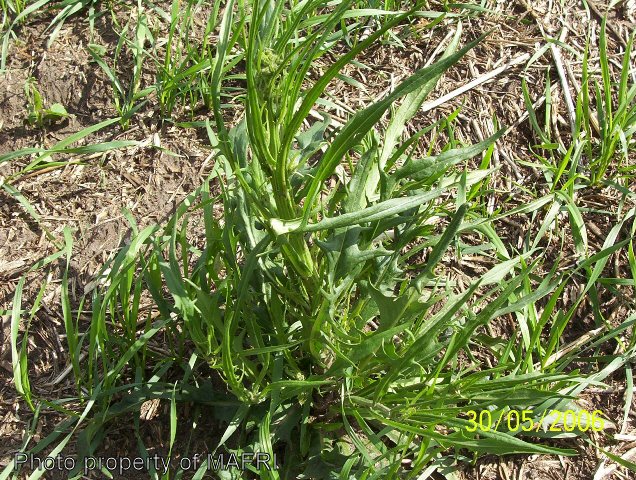 |
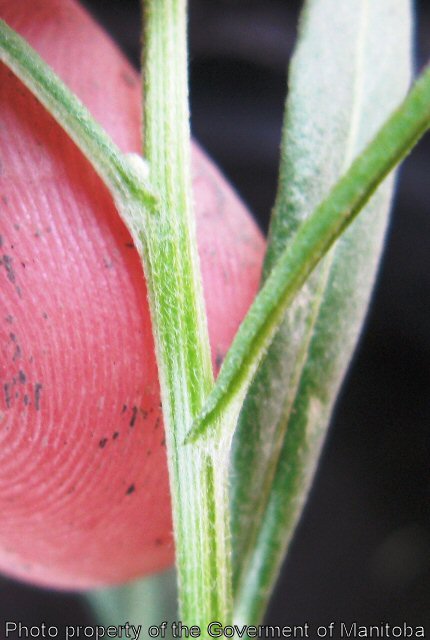 |
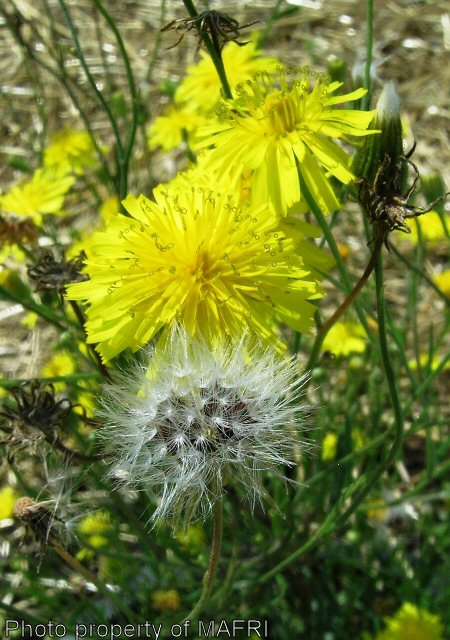 |
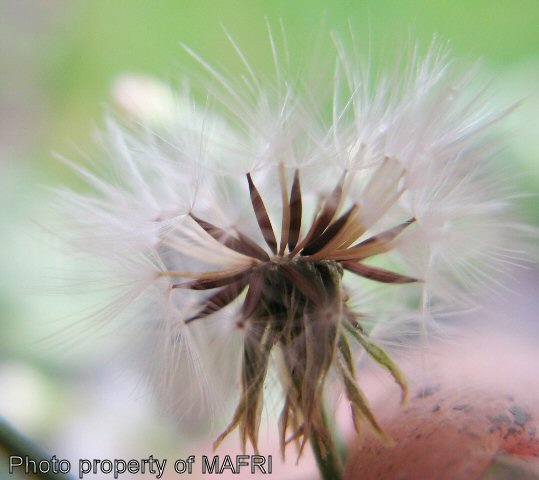 |
Biology
An annual or winter annual weed, reproducing by seeds. The stems are erect, up to 1 m tall, branched, and leafy with a milky white sap. Basal leaves are petiolate, up to 15 cm long and 4 cm wide, with leaf margins varying from a few small teeth to deep lobes. Stem leaves are sessile, long and narrow, and less than 1 cm wide. Flower heads are bright yellow, contain only ligulate florets, and are surrounded by hairy involucral bracts. The seeds are 2.5-4 mm long, ribbed, dark purple to brown with a pappus of hair almost as long as the seed attached to the top.
Scouting Techniques
Take a minimum of 20 weed counts across the field. Check cultivated fields, roadsides, and waste areas for patches of this weed.
Effects On Crop Quality
A problem in forage crops, especially alfalfa. May exist as an annual in cultivated fields. Not controlled by 2,4-D. A particular problem in reduced tillage systems.
Threshold/Yield Loss
A contaminant in alfalfa seed because it is difficult to separate.
Control Tips
- fall or spring cultivation
- mow, reduces seed production
- Group 9 in herbicide tolerant crops
- Group 4 herbicides

